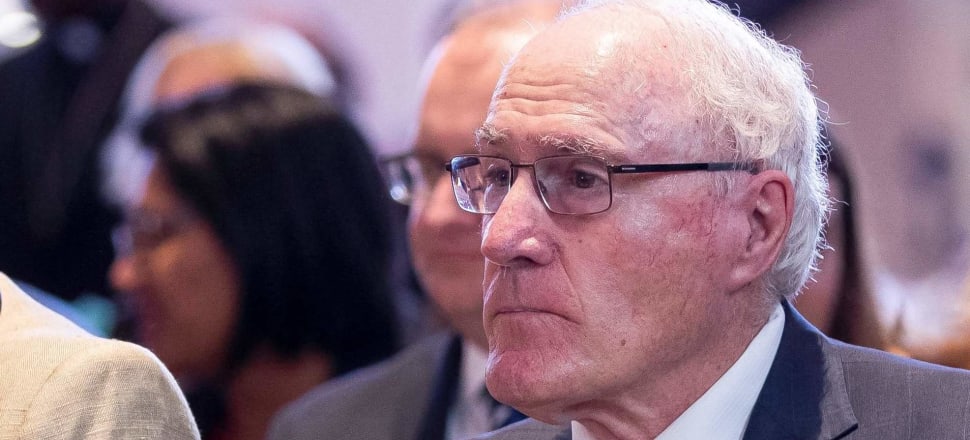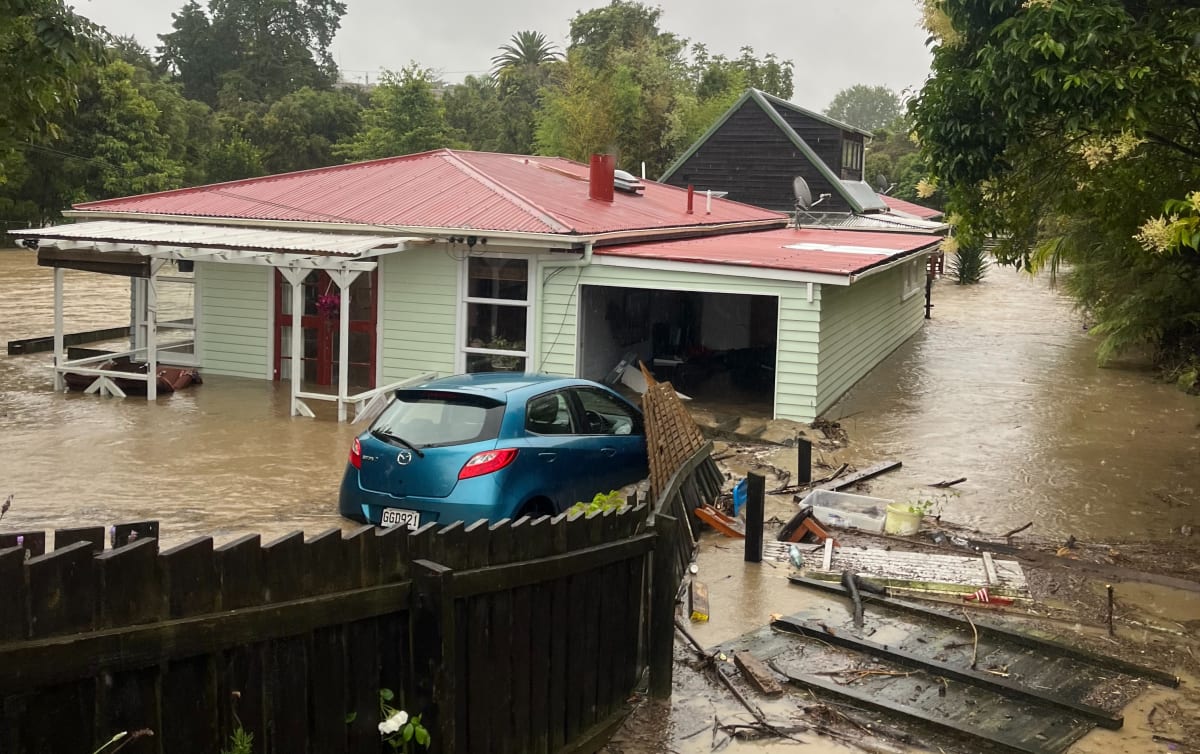
Parliament must scrutinise its methods and procedures to avoid officials 'cutting corners', says Sir Geoffrey Palmer
Parliamentary staff will discuss the extent to which bureaucrats are improperly changing draft laws, after Newsroom reported MPs' stinging rebuke of Internal Affairs officials.
The finance and expenditure select committee reports the department's officials went behind MPs' backs to make changes to the Three Waters reforms that MPs didn't agree with.
Clerk of the House David Wilson says he will discuss concerns with staff of all select committees next week, but any formal review would have to be conducted by Parliament's business committee, chaired by the Speaker. That's not presently on the agenda.
READ MORE: * Three Waters select committee slates officials usurping democratic process * Government agrees to let councils retain water contractors * Budget: Time to pay the piper for Three Waters IT system
The unauthorised changes spotted by MPs included an apparent attempt to undo critical committee changes to stormwaters management. MPs had sought to ensure private landowners weren't required to manage urban streams, but officials told the Parliamentary Counsel Office to leave responsibility for hazards with the landowner, working collaboratively with their new regional water entities.
Officials also directed that the bill be changed to remove the requirement to engage with mana whenua, and instead to engage with interested persons – but they didn't define interested persons. MPs compromised by ordering a definition be included, to avoid any ambiguity or dispute over the meaning.
"The comment the committee has made is quite a good wake-up call and maybe a bit of a warning shot." – David Wilson, Clerk of the House
And officials wanted to give the minister power to redact any information from an order in council transferring the assets and liabilities of a local government organisation to a new water corporation. But Parliamentary Counsel said this was unworkable because an order in council is made by the Governor-General. And information cannot be redacted from it, once it is published.
Internal Affairs' local government arm is headed by deputy chief executive Michael Lovett. Hamiora Bowkett reports to him as executive director of the reform programme.
Newsroom has asked what disciplinary action will now be taken, whether the department’s leadership will be apologising to MPs, and whether the department will be reviewing its actions with regards to other bills.

Bowkett issued a single sentence statement: "The Department of Internal Affairs has acknowledged the issues raised by the finance and expenditure committee and these matters were addressed through the committee process."
It's understood Internal Affairs has not apologised to the committee, nor to the Speaker of Parliament.
The stormwaters change was one of the biggest, but some on the committee feel the officials were unwilling to brook any change to the structure they'd designed. Act MP Simon Court has called them "combative and intransigent", and National's Simon Watts says the law change's impact on councils and ratepayers is important.
"We discussed this long and hard in the committee and got the officials to give us advice ... Where we landed was basically allocating responsibility for the maintenance of the streams that make up a critically important part of stormwater to the new water services entities." – Phil Twyford, Te Atatū MP
The stormwaters change eventually reported back by the select committee will particularly affect Aucklanders. Te Atatū MP Phil Twyford says streams and creeks are an integral part of the city's stormwater network – and when they're blocked, the results can be catastrophic.
Twyford, a Labour member on the select committee, has been arguing the case for west Auckland residents who were flooded out of their homes at Auckland Anniversary weekend. "There are about 3,000 kilometres of streams that run through Auckland, and about half of that distance runs through private land," he tells Newsroom.
"When those homeowners ring up the council and say the stream is blocked, whole trees and debris have washed down after the heavy rain and I'm worried, the council just says, it's not our responsibility. It's your responsibility. It's nuts. And often it's not their fault, the debris has washed down from upstream."

"We discussed this long and hard in the committee and got the officials to give us advice. And we went back and discussed it again and where we landed was basically allocating responsibility for the maintenance of the streams that make up a critically important part of stormwater to the new water services entities."
That was what the committee reported back to the House last week – but only after the MPs and their independent advisor spotted the officials' attempt on May 18 to change it to require water entities to "work collaboratively with the landowner ... to implement a solution to ensure the risk is managed".
"Landowners aren't being let off the hook, they have to behave responsibly," Twyford says. "But the main ongoing responsibility for maintenance will lie squarely with the water entities, and private landowners won't be liable to fix problems caused by omissions by other landowners upstream."
"The deviation in this report should be taken seriously and not repeated. I have been concerned for some time that there are strains in the parliamentary system at present." – Sir Geoffrey Palmer
Leading NZ constitutional law expert, former Prime Minister Sir Geoffrey Palmer, says the officials' attempts to make unauthorised changes to the bills were serious. He warns New Zealand lacks the checks to prevent constitutional slippage.
"The deviation in this report should be taken seriously and not repeated," he tells Newsroom. "I have been concerned for some time that there are strains in the parliamentary system at present which are the culmination of various emergencies that have piled one upon another."
The difficulties began with Covid, but have worsened through New Zealand's ordeal by storm and slips.
"There is a great deal going on in the Parliament. There is too much work, not a sufficient number of MPs to do it, and not enough time. The fact that a general election is in the offing makes the pressures worse."
Officials are "under stress" as well. "There are not normal times and inevitably things go wrong," he says. "I think the New Zealand Parliament should have a real look at its methods and procedures so it can handle issues better, as I said to the Standing Orders Committee.
"There is always a temptation in emergency situations to cut corners and depart from constitutional principle. New Zealand lacks the checks and balances to prevent such constitutional slippage."
Parliament's Clerk of the House, David Wilson, said the committee's concerns had been escalated to him by his staff on the committee. "The comment the committee has made is quite a good wake-up call and maybe a bit of a warning shot," he tells Newsroom.
"The positive side of it is that the committee noticed the changes. And both made this adverse comment on it, and presumably also took steps to address the problem while it was happening.
"To my knowledge, this is the only time a committee's made a comment like this. Obviously it was sufficiently concerning for them, unanimously, to say something," he says. "I do think it is a really rare occurrence. Certainly it's the only time a committees got bothered enough by it to report it.
"For us, it points to the need to keep a very sharp focus on departmental reports and the draft from the Parliamentary Counsel Office, and make sure they align with Committee decisions."
He'll be discussing it with all his select committee staff when they meet next week. "It's a reminder for people that what they're doing in terms of scrutinising that advice is really important, and not to be rushed in doing it."







